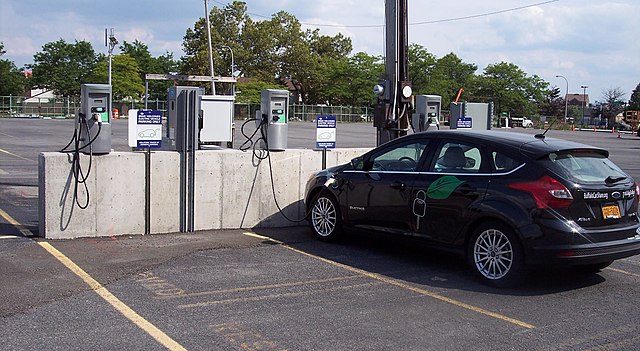Is a Green Trade War Brewing?
The Inflation Reduction Act has inflamed trade tensions around the world, just as we predicted in 2015
It is rare that a law professor gets to say with some justification, “I told you so.”
But… Wait for it…
I did tell you so.
Or, more precisely, Mark Wu and I predicted the current conflict pitting the United States against the rest of the world in our 2015 Northwestern Law Review piece, “Next Generation Trade and Environment Conflicts.”
Before touting our Nostradamus-like forecast, though, some quick background is in order. Mark and I argued that the standard “first generation” trade and environment conflicts – where countries used border trade restrictions to influence the environmental behavior of other countries, such as killing fewer dolphins when catching tuna or killing fewer turtles when trawling for shrimp – was giving way to a new wave of trade conflicts. In these “next generation” cases, countries seeking to grow their domestic renewable energy industry were using the traditional tools of industrial policy to do so. As we described at the time, “governments’ rising use of industrial policies to spark nascent renewable energy industries and to restrict exports of certain minerals in the face of political economy constraints… often violate World Trade Organization (WTO) rules, leading to increasingly harsh conflicts between trading partners.”
Heralded as a game changer for US climate policy, the centerpiece of the recent Inflation Reduction Act (IRA) is $369 billion in subsidies to spur development of a stronger renewable energy economy, from electric cars to transmission lines. Labor was a strong supporter of the IRA, encouraged in large part by the “local content” requirements in the legislation and other provisions supporting investment around the country. To give one example, a $7,500 tax credit for electric cars is available for cars substantially made with parts from North America and assembled there.

Local-content subsidies are defined under WTO law as a subsidy “contingent…upon the use of domestic over imported goods.” These policies are seen as effective ways to create jobs as well as boost the competitiveness of domestic firms. It can also induce upstream foreign producers to establish production facilities inside the country in order for their products to count toward the local-content requirement.
While effective, local content requirements are clearly trade distortive and are banned outright under the Subsidies and Countervailing Measures Agreement. Despite local-content requirements being illegal per se, however, they have featured prominently in renewable energy policies worldwide in both developing and developed countries. Governments offering benefits for use of locally produced goods in their renewable energy programs have included Brazil, China, Croatia, France, Greece, India, Italy, Spain, Turkey, Ukraine, and several U.S. states and Canadian provinces.
Following passage of the IRA, Korea immediately expressed its concerns over the electric vehicle tax credits. The European Union soon followed, with its Trade Commissioner stating that the IRA subsidies “discriminate against EU automotive, renewables, battery and energy intensive subsidies.” The EU Commission informed the US Treasury Department that five IRA measures “contain provisions with clearly discriminatory domestic content requirements, in breach of WTO rules.” In remarkably plain speaking for diplomatic communications, the EU stated that the IRA “risks creating tensions that could lead to reciprocal or retaliatory measures.”
Where might this go next?
A joint US-EU task force has been created to seek a solution but it’s not clear whether one can be found. The IRA passed on a party-line vote and getting Congress to amend it seems unlikely. The EU and other nations could bring a WTO challenge. They have a strong case and would likely prevail, but the dispute resolution process can take well over a year and, with the Appellate Body no longer operating, the US could simply appeal an adverse decision and it would disappear into the void. What seems more likely is that other countries will simply be bolder with their domestic trade policies, following the US lead. Indeed, one could argue that this has already been happening over the past decade, though with the damper of WTO cases. Rather than just starting, the green trade war is more likely entering a new and more aggressive phase.
Reader Comments
One Reply to “Is a Green Trade War Brewing?”
Comments are closed.







The economists’ claim of universal gains of trade are eroding, especially as the evidence mounts of growing wealth disparity facilitated by pitching different nations against each other to supply ever cheaper labor. (Spoken as an economist.) There are good reasons to establish tariffs to support national policies, and even promoting new industries that establish a standard practice for other nations to follow. A nation shouldn’t set tariffs just to protect their obsolete industries but we should be much more forward looking in how we use tariffs and agreements.